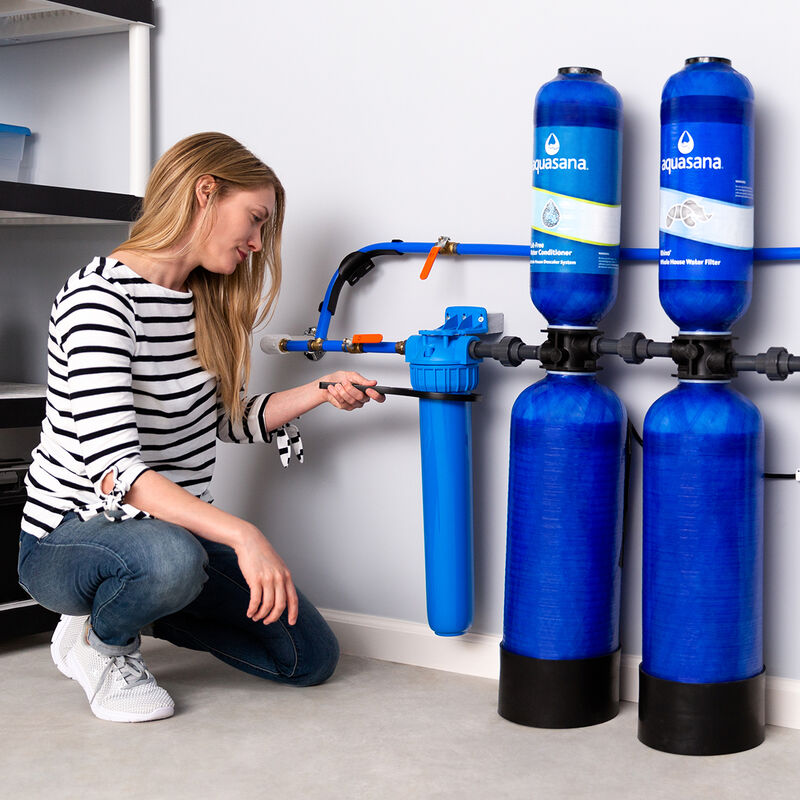Are you concerned about the quality of your well water? Worried about contaminants and impurities that could be lurking in every drop? Well, worry no more! In this comprehensive guide, we’ll walk you through everything you need to know about choosing the right well water filter. Whether you’re looking for a whole house water filter or a kitchen water filter, we’ve got you covered. So sit back, relax, and let’s dive into the world of clean and pure well water!
Types of Well Water Filters
When it comes to well water filters, there are a variety of options available to suit different needs and preferences. One popular type is the activated carbon filter. This type of filter uses activated carbon, which has a high surface area that can effectively trap and remove contaminants like chlorine, pesticides, and volatile organic compounds (VOCs). Activated carbon filters are known for their ability to improve the taste and odor of well water.
Another option is the sediment filter. As the name suggests, this type of filter is designed to remove sediment particles from your well water. Sediment filters typically use a pleated or spun polypropylene material that physically traps larger particles like sand, silt, and rust before they can enter your plumbing system.
If you’re concerned about bacteria or other microbial contaminants in your well water, you may want to consider an ultraviolet (UV) disinfection system. UV filters use short-wavelength light to kill microorganisms by disrupting their DNA structure. These systems are highly effective at eliminating bacteria, viruses, and protozoa without using any chemicals.
For those looking for a more comprehensive solution for their entire household’s water needs, a whole house filtration system might be the way to go. These systems are installed at the main entry point of your home’s plumbing system and treat all incoming water before it reaches any faucets or appliances. Whole house filters typically combine multiple filtration technologies such as activated carbon, sediment filtration, and sometimes even UV disinfection for maximum purification.
Remember that choosing the right well water filter depends on factors such as your specific water quality issues and budget considerations. It’s always recommended to get your well water tested so you have a better understanding of what contaminants need addressing.
With these various types of well water filters available on the market today, there’s sure to be one that suits your unique needs! So take control over the quality of your drinking water with an appropriate well-water filtering solution. Your health and peace of mind will thank you!
Installation and Maintenance of Well Water Filters
Installing and maintaining a well water filter is essential for ensuring clean, safe drinking water in your home. The installation process may vary depending on the type of filter you choose, but it typically involves connecting the filter to your main water supply line. It’s important to follow the manufacturer’s instructions carefully to ensure proper installation.
Regular maintenance is crucial for keeping your well water filter functioning effectively. This includes replacing filters as recommended by the manufacturer, which can range from every few months to once a year depending on usage and water quality. Additionally, it’s important to regularly check and clean any pre-filters or sediment traps that may be included in your filtration system.
In some cases, professional servicing may be required to inspect and maintain certain components of the well water filter system. This can help identify any potential issues early on and prevent costly repairs down the line.
Investing in a well water filter is an investment in both your health and peace of mind. By following proper installation procedures and regular maintenance routines, you can ensure that your well water remains clean and safe for years to come.
Conclusion
Choosing the right well water filter is essential for ensuring clean and safe water for your home. With the various types of filters available, it’s important to consider your specific needs and preferences before making a decision.
Whole house water filters are ideal if you want to ensure that every faucet in your home delivers filtered water. These filters remove contaminants like sediment, chlorine, pesticides, and more, providing you with clean and refreshing water throughout your entire household.
On the other hand, kitchen water filters offer targeted filtration at the point of use. They are installed under the sink or directly onto the faucet to provide purified drinking and cooking water. This option is perfect for those who primarily want to improve the taste and quality of their tap water without investing in a whole-house system.
When it comes to well water specifically, additional considerations must be taken into account due to potential contaminants such as bacteria, viruses, heavy metals, nitrates, and more. Well water filters designed for this purpose often incorporate advanced filtration technologies like UV sterilization or reverse osmosis to effectively eliminate these harmful substances.
Remember that proper installation and maintenance of well water filters play a crucial role in their effectiveness. It’s important to follow manufacturer guidelines regarding installation procedures as well as regular filter replacements or cleaning schedules. Regular testing of your well’s quality is also recommended so that you can make any necessary adjustments or upgrades accordingly.

